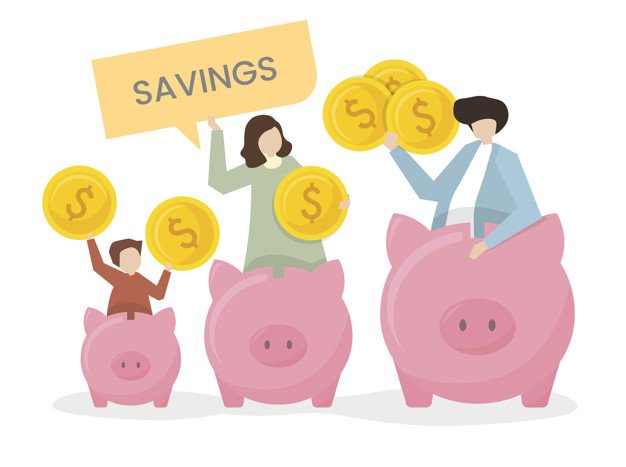Personal finance goals cannot take off without first putting in place a savings plan. Many people know that it is important to have one and execute it, but for some reason, they still end up not saving. One must be deliberate about it and must also put together a concrete plan which when followed can lead to the achievement of their financial goals. Cost of living is high and there may be times where emergency funds are needed.
It is important to note that the savings plan should not feel too constraining or draining. One must balance savings and discretionary funds. So how does one go about creating a savings plan? Here are some considerations:
The Importance Of Saving: The Bedrock of a Bright Financial Future:
1. Start by setting a goal:
Goals are a major motivating factor where money and saving is concerned. One must identify the end result of their savings. What is the money for? What does the person hope to achieve? This can be a dream holiday, saving for that down payment so one can finally purchase their own home, or even saving for when one retires. Or perhaps, one wishes to go for Lasik surgery and the cost of Lasik in Singapore is not cheap, so they will need time to prepare the funds. Setting a goal drives the saver and also encourages them when they have to delay gratification on other things because achieving the goal becomes the ultimate reward.
2. Separate funds:
It is important that savings be put in an account separate from money for day to day expenses. If the money can be in a locked account, this is even better. Unfortunately, life has a way of smelling out “extra” funds, which means that a situation can easily arise which will cause the saver to dip into these funds. Having the money in an account that can’t easily be accessed is thus a great idea.
3. Track expenses and cut back:
Personal finance includes tracking one’s expenses so that he or she can determine how they are spending their money, and how much can actually go into savings. Expenses generally fall into 3 categories.
- Fixed expenses. These include rent or mortgage, loan repayments, insurance premiums and the like.
- Variable expenses. These may include utility bills, cell phone bills, grocery shopping and the like.
- Discretionary expenses. Usually, these are expenses that mainly want and not needs. They include money for a cup of java, eating out, clothing, the gym and the like. It is good to make sure that one puts aside some discretionary money to use for enjoyment. Otherwise, a very stringent savings plan will prove impossible to execute and end up abandoned.
Once all expenses have been tracked, one can identify areas where spending can be tightened to avail more money for saving.
4. Get rid of all temptation:
It is amazing how temptations to spend can crop up out of nowhere. One must mitigate this risk to their savings by coming up with a plan to avoid any temptations. One of the best ways is to spend using cash only. That way, one knows just how much money has left their pocket and is able to limit their spending by stopping once their cash is finished. Of course, this means leaving the house with just the amount that one intends to spend. Another thing to do is to avoid aimlessly walking through shopping malls and to ensure that when going to the supermarket for groceries, they have a complete list that they do not deviate from unless they have carried money from their discretionary allowance. Finding hobbies that do not require spending lots of money can also go a long way in enabling one to save.
5. Make automatic transfer a friend:
When it comes to personal finance, one has to execute its savings plan automatically where possible. This means that he or she can have a direct debit set up that pulls out the amount they want to save every month and deposits it in the designated savings account. This way, the saver will be saving first, and then spending based on what is left, instead of working up the willpower to put away money for savings from month to month. From there, it is about adapting to what is left and making sure that the person sticks to their budget.
Getting started with saving is the most important thing because from there, one tends to gain the necessary momentum needed. One needs to ensure that the first savings goal is an emergency fund in which there is enough money to take care of 3 to 6 months expenses in the event that they lost their job. This money should be kept in an account where it earns good interest so that it is not lying idle. It is also important that the account be accessible should the need arise.
Getting personal finance right is not difficult, but it definitely requires self-discipline. If one can get that right, he or she will be well on his or her way to financial freedom and a brighter future.
Read Also:






















